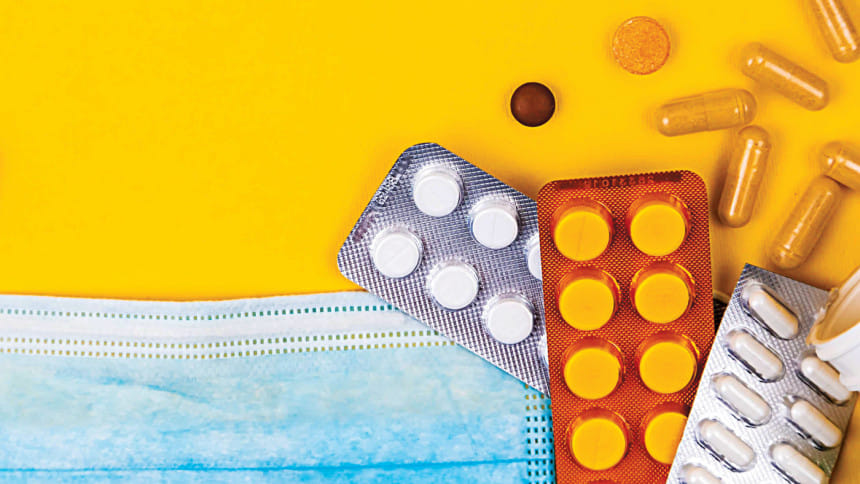Making innovations accessible to the people during pandemic

The role of intellectual property (IP) in combating Covid-19, either in facilitative or restrictive way, is a recurrent issue resurfacing nowadays. Needless to say, the extensional aspect of IP- meaning various areas of IP such as patent, trade secret, test data protection, new data or research data protection in general and copyright in part – already have or likely to have huge implications at the context of Covid-19. Most relevantly, patenting of medicines, vaccines, testing kits and other innovations for treating Covid-19 could have serious ramifications on access and affordability to Covid-19 treatments. Like other areas of patent, the monopoly granted by the pharmaceutical patent, typically for twenty years, is justified based on the 'social contract theory' meaning exclusivity granted in exchange of disclosure of knowledge to the society and/or utilitarian aspect of incentivising or encouraging investment in research and development (R&D) for new drugs, medical equipment and other innovations.
The patent regime is designed to ensure a legal climate where investment is secured, recouped and wheel of inventions (including for lifesaving drugs) is kept moving. Arguably in many cases, pharmaceutical companies aim at the market where patients can afford the high price of R&D. In this way, the poor and marginalised segments of the society may deprive of their access to medicine and health. Thus, competing values of corporate profits and public interests might conflict which is incompatible with the 'social policy theory'. Ideally, in such a situation, the private interests should be sacrificed reflecting sociological thoughts on jurisprudence 'attaining maximum benefits with minimum frictions' or even utilitarian idea of 'the greatest good for greatest number'. Indeed, compulsory licensing, government use and other exceptions in international IP regime, notably in TRIPS Agreement, are crafted to restrict the private rights for public interests.
It is clear that moderating or balancing intellectual property regime for public interest consideration is well recognised and embedded within the IP system. Yet, the burning issues and debates on the innovation models, closed innovation versus open innovation, strong patent regime versus open science have remerged at the onslaught of Covid-19. It is argued that science should be open in which the transparency, collaborations and fostering innovations shall be maintained. Putting more clarity, the characteristics of open science have been delineated by Robert K. Merton as CUDOS: meaning, Communalism - sharing scientific outcomes without others where scientists give up their IPRs in exchange of social recognition, Universalism – scientific knowledge or inventions are of universal criteria and should be reproducible under same conditions, Disinterestedness – meaning the researcher's attitude is objectivity not biased and not motivated for profit or lack of profit, Originality- research results should be novel contributions and finally, Skepticism – all scientific outcomes are subject to rigorous scrutiny which ensures rectification and thus maintains quality of the works. When scientific results are shared, collaborated and made open to all, the 'errors' are quickly detected and fixed, which reflects the dictum – 'with enough eyes, all bugs are shallow'.
Covid-19 has exposed our structural inequality and systematic unfairness. At the outset of Covid-19, some hesitant approaches were visible in pharmaceutical industry. Fortress IP group initially gestured to enforce their two patents against BioFire for technologies which might be useful for Covid-19 tests but later they clarified that law suit is not going to restrict the Covid-19 test. Similarly, the move of Gilead to protect of remdesivir, for seven years as orphan drug, has also attracted a lot of criticisms which perhaps forced the pharma giant to retract from original position. The 3M, an American conglomerate corporation, was also criticised for using its monopoly over N95 respirators. AbbVie has already made it clear that it is not going to enforce its patent over Kaletra which potentially be used for Covid-19. Likewise, Novartis pledges that it will relax its potential IP, through a non-exclusive licensing or waivers, over any potential drug which may be developed from hydroxychloroquine. Moreover, there are collaborative initiatives where big pharmaceuticals are coming together under the funding of some philanthropic institutions.
The world's renowned academic institutions and universities are also making their pledges that inventions will be available to the people through royalty-free licensing framework to tackle global pandemic. The World Health Organization, in the meantime, initiated 'Voluntary IP Pool' which would create "a repository of information diagnostic tests, devices, medication or vaccines, with free access or licensing on reasonable and affordable terms, in all member countries of the organization". Bangladeshi pharmaceutical companies have taken the advantages of TRIPS flexibilities to produce generics remdesivir to meet local and foreign needs. They may also come up with other innovations useful for COVID-19 treatment. However, making innovations and drugs accessible to the people during the COVID-19, particularly in developing countries is a big concern. Thus, debate on redesigning, renovating and/or manoeuvring existing flexibilities of IP regime for public health purpose would unlike to abate if, at least, Covid-19 is not properly dealt with or Covid-19 pledge is not duly performed.
THE WRITER IS A WIPO SCHOLAR, ADVOCATE SUPREME COURT OF BANGLADESH AND SENIOR LECTURER IN LAW, EAST WEST UNIVERSITY, BANGLADESH.

 For all latest news, follow The Daily Star's Google News channel.
For all latest news, follow The Daily Star's Google News channel. 



Comments